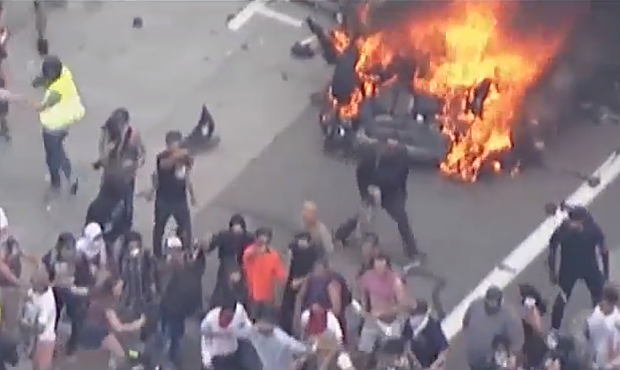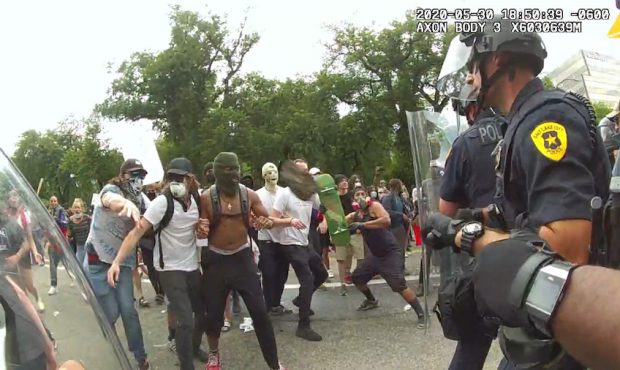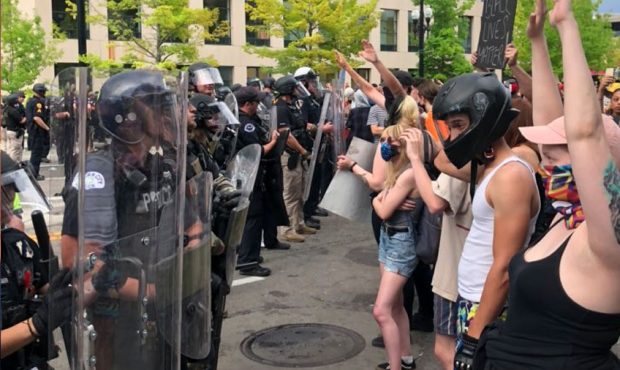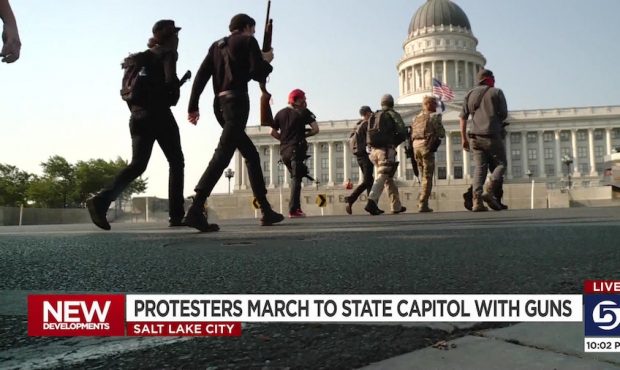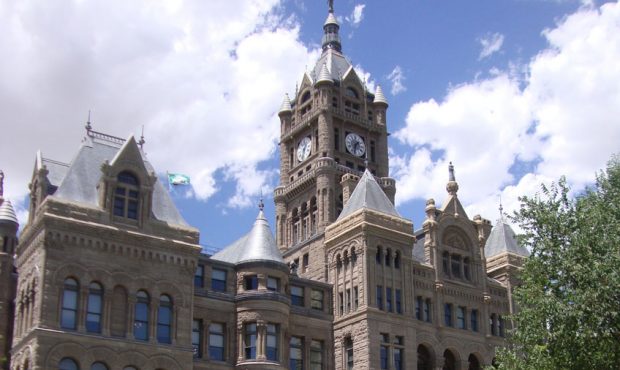SLC Mayor, Police Unveil Seven Policy Changes
Aug 3, 2020, 9:43 PM | Updated: Aug 4, 2020, 12:07 am
SALT LAKE CITY, Utah – Salt Lake City Mayor Erin Mendenhall and Chief Mike Brown with the Salt Lake City Police Department unveiled seven new policy changes regarding the department’s use of force, body-worn cameras and searches and seizures.
Mendenhall announced the changes, which must be enacted by Sept. 5, according to the executive order she signed Monday.
“The people of this community deserve a city that is equitable for all who reside here. We are committed to that, and meaningful institutional changes to the way our city is policed are a key ingredient in that progress,” Mendenhall said. “These seven reforms are the beginning of our work, not the end. We will see additional reforms in the coming weeks and months. My priority is that these reforms improve officer safety and public safety, which is a balance we have worked and will continue to work collaboratively to achieve.”
The seven changes come after protests over the death of George Floyd in Minnesota and, here in Salt Lake, the shooting death of Bernardo Palacios-Carbajal that prosecutors determined was legally justified.
But Mendenhall has told KSL that Utah’s laws give police too much leniency and today’s order states that deadly force can only be used in limited situations when no other use of force would stop a threat.
The chief said many of these changes were already in practice, just not written into policy.
Salt Lake City Police Announce Policy Changes
LIVE: SLC Mayor Erin Mendenhall and Police Chief Mike Brown are holding a press conference to announce policy changes.
Posted by KSL 5 TV on Monday, August 3, 2020
“I want to be on the front end,” Brown said. “I want to be progressive. I want to do the right thing so we can better serve our community. At no point, though, do I ever want to jeopardize an officer’s safety.”
A breakdown of the policies from the mayor’s office is included below.
Use Of Force
- SLCPD’s Use of Force policy will go beyond the current constitutional floor of Graham v. Connor, which has long required an officer’s use of force to be only “objectively reasonable” under the Fourth Amendment.
- While the policy currently requires that an officer find it “reasonable to believe” that a person will use a weapon to harm someone, an officer must now determine that deadly force is “necessary” and that the threat of death or serious bodily injury is “imminent.” Necessary and imminent are terms that are already used in state code and city policy on use of force, but those terms have not been defined. They will be carefully defined in the new policy.
- SLCPD Officers will now be required to use de-escalation techniques before using force. De-escalation tactics are no longer suggested or preferred — they are mandatory prior to using force to effect an arrest unless it would be unreasonable to do so. Officers will employ effective communication techniques in an attempt to achieve voluntary compliance. Officers will be expected to not contribute to a situation that could lead to use of force by taking unnecessary, overly aggressive action.
- The use of deadly force is prohibited when trying to prevent an individual from self-harming where the individual is not an immediate threat to others.
- While the Duty to Intercede policy has long required officers to intercede if they observed an improper use of force, officers will now be expected to do more. Any officer who reasonably believes an officer is about to use force or other action that is illegal, excessive, or otherwise inconsistent with policy must, absent extraordinary circumstances, do whatever they can to interrupt the flow of events and prevent the use of force. If a supervisor is on the scene, the supervisor must give a direct order to prevent the use of force.
- To create greater accountability and transparency, officers will include additional detail when reporting uses of force, including any de-escalation tactics they attempted to employ. Two levels of supervisor will review all uses of force, not just those that result in bodily injury.
Body-Worn Cameras
- SLCPD’s body-worn camera policy must follow the minimums in state code, but will go beyond those requirements to explicitly allow discipline for officers who intentionally or negligently fail to activate their cameras. Because this change involves potential disciplinary action, the City’s Memorandum of Understanding with the police union requires us to allow the union 30 days to consider and comment on it before enactment.
Searches & Seizures
- SLCPD officers conducting searches of real property or a vehicle without a warrant will be required to inform the person being searched of their right to refuse, and to obtain the signature of the person consenting on the SLCPD Consent to Search Form, which will be updated to be easier to understand, and translated into languages most commonly spoken in the City.

